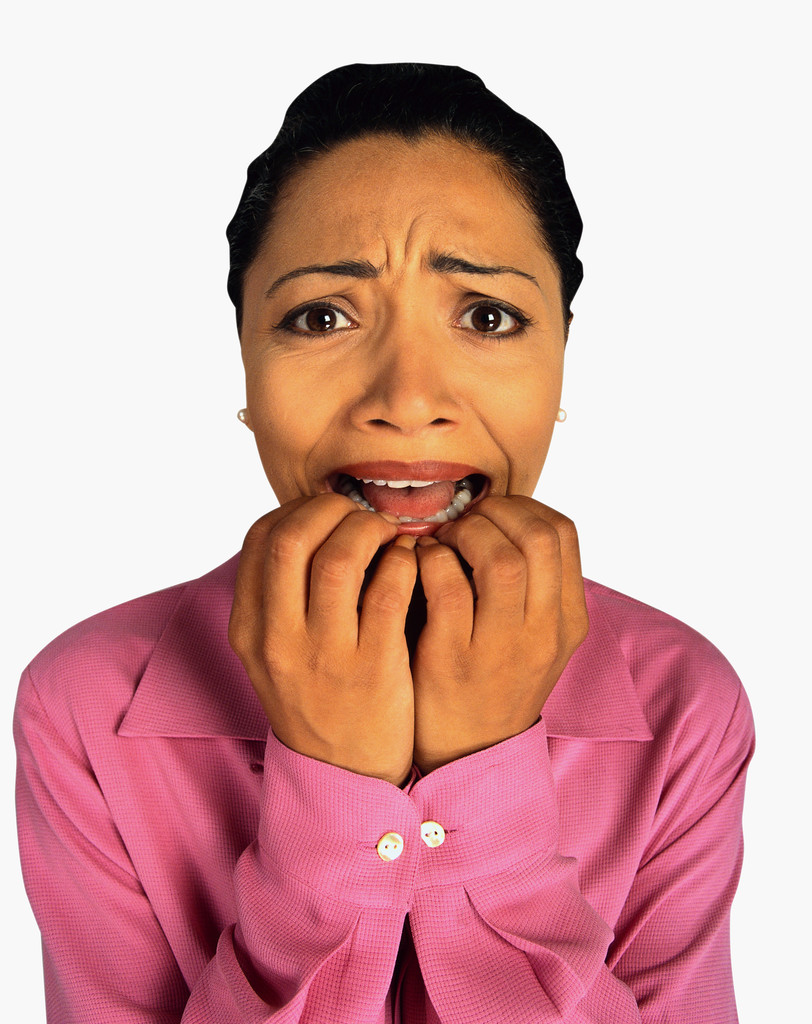Tips on Coping with Anxiety and Bipolar Disorder

I’m pretty sure I have anxiety and bipolar. I've never been diagnosed with an anxiety disorder, and I’ve never talked about anxiety with my doctor, but I’m pretty sure it’s there. I meet the criteria for an anxiety disorder and and it wouldn’t be altogether shocking if this were the case as anxiety disorders are the most common mental illness and comorbid disorders with bipolar disorder are the rule rather than the exception.
So, I'm pretty sure I have anxiety and bipolar disorder. But as I’ve said, I’ve never been diagnosed or treated for an anxiety disorder. (This is a case of do as I say, not as I do. If you think you have a disorder, you should be professionally diagnosed and treated.) Here’s how I deal with my anxiety in bipolar disorder.
What Are Symptoms of an Anxiety Disorder?
Well, there are all sorts of anxiety disorders from phobias to social anxiety to generalized anxiety disorder. The general symptoms of anxiety are excessive worry that is difficult to control. Anxiety is associated with other symptoms like:
- Restlessness, being keyed-up or on edge
- Being easily fatigued
- Difficulty concentrating or mind going blank
- Irritability
- Muscle tension
- Sleep disturbance
- Palpitations, pounding heart or accelerated heart rate
- Sweating
- Trembling or shaking
- Shortness of breath
- And many, many other things depending on the specific disorder
Oh boy, am I familiar with these feelings.
How to Handle Anxiety in Bipolar Disorder
 I think handling anxiety in bipolar disorder is actually very similar to handling any other mood type. A lot of how it is done is self-talk and behavior modification. I do things like:
I think handling anxiety in bipolar disorder is actually very similar to handling any other mood type. A lot of how it is done is self-talk and behavior modification. I do things like:
- Talk myself down from the anxiety by using logic about the situation (For example, I just did a photo shoot and I was really nervous so I told myself, this is just a photograph and is one tiny image of my life. It isn’t the end of the world.)
- Remind myself of the temporary nature of the anxiety-producing stimulus (this photo shoot will be very fast and will be over soon)
- Tell myself that this is just my anxiety speaking and it isn’t really me
- Remind myself that this anxiety isn’t helping me and I should let it go
- Mindfulness meditation (it sounds a little new-agey, I know, but it actually works to calm anxiety)
- Deep breathing
- Doing things ahead of time that might make me feel better about the task (for example, I got my hair done for the photo shoot)
- Chunking tasks into smaller, more manageable, less “scary” tasks
- Living in the moment (the future will take care of itself)
- Occasionally take a benzodiazepine
I’ve found this anxiety can be every bit as much paralyzing as any other mood and often occurs with depression to compound the symptoms. So dealing with it is critical.
Of course, these anxiety tips are the ones I use. Do you have any techniques to combat stress or anxiety with bipolar disorder?
See Also: "Bipolar Depression with Anxiety: What Treatments Work"
APA Reference
Tracy, N.
(2013, November 6). Tips on Coping with Anxiety and Bipolar Disorder, HealthyPlace. Retrieved
on 2026, March 5 from https://www.healthyplace.com/blogs/breakingbipolar/2013/11/coping-anxiety-bipolar-disorder
Author: Natasha Tracy
I've been working in a gov't office as a cashier for the last 2 years posting payment in a simple excel ledger and updating other existing systems. I'm always anxious and stressed out at the end of the day trying to make sure I balance on time. Often people will show up at the last minute just as I'm trying to cash out. It makes me lose my concentration when I have to rush and sometimes my patience. If I have to stay late so does my boss but oddly he never helps me when I don't balance. Honestly, I don't think he knows how. It's usually a coworker who'll step in to help but recently my main go to person has left and we have a new gov't accounting system coming in soon that I'm gonna have to learn how to operate. So far I'm finding the new system is not very user friendly. I'm having alot of trouble grasping how to use it with the limited amount of training provided... trying to remember all the applicable commands and navigate my way through the system, etc. I'm getting quite panicky. I didn't grow up with computers so I find them incredibly intimidating.
I'm completely beside myself, overwhelmed with worry. My stress and anxiety level is at an all time high and I feel sick to my stomach. I also have GAD but I refuse to take addictive benzos. I know I have to suck it up and act like a big girl but I can't stop what ifing. What if I can't get my work done on this new system? Who is going to help me? There's a much younger person who is also being trained as my back up. What if I lose my job to her? I have alot of debt and I am too old to look for another job (I'm a year away from possibly retiring provided I can get my massive visa debt paid off by then which is highly unlikely) I've never been unemployed before. What kind of job am I going to get with my credit rating? What if I become homeless? What if I can't pay MY bills. What if, what if, what if... I don't have a back up plan and no friends or family that can help. I'm completely on my own and it scares the hell out of me. I can't sleep. I toss and turn all night and can't stop ruminating
My new therapist taught me to look at the evidence. When I am anxious or being too critical of myself I look for evidence to support what I am feeling. A majority of he time there is no evidence to support my feelings. After dealing with anxiety for 15 years this is the best advice I have ever received. It is especially helpful when I criticize my parenting abilities.
Ugh. When I'm manic, these things work. When I'm depressed and anxious, these things do not. I hate meds- false advertisement as far as I'm concerned- and running low on other options. My advice: set up a safety net of family and friends who can catch you when you fall. It's super awkward to say, "Hey, when I do or say crazy things, can you just help me?listen, correct me, restrain me, hospitalize me if necessary?" Real friends and family will be happy to help, and will have more understanding when you explain symptoms before they happen. The first couple episodes they help you through might scare them, but usually they are happy to joke with you about it later. They can help you when you cannot help yourself.
I find the only relief to extreme aniety is to self-medicate myself.i can usually pin point my anxiety/attacks, but somemetimes they come without warning. I take 2 mg three times a day as needed. I try not to take one a day due to my increase in anxiety. All throughout my life, I self medicated by alcohol and other drugs. Cudos to people who use breathing exercises and yoga. It must only work with mild anxiety. As to those who claim to change their way of thinking, I believe, only works for people who know what their anxiety precipitated. As for me. No clue. Been to doc after doc, workshops etc. and as for for the worst saying of all time, "It is what it is.", makes mr cringe. Be in my shoes.
I find practising yoga to be extremely effective in managing/reducing my anxiety. Right after practising yoga my anxiety can be reduced from an 8 to a 3 (out of 10)! Diaphragmatic breathing also greatly helps.
From my mom (age 92) best & always advice: "It is what it is. All we can do is move forward." Mine to me: "But God!" They're basically bottom lines--great for contemplation, meditation, and most importantly, implementation. These take root with my heart when it can, and self-forgiveness when I cannot. So when push comes to shove--with all my strength and/or (ironically) none--the way best for me to respond is, "whew!"
Natasha,
I would like to wish you good luck in your trip down anxiety road. Finding the right diagnosis and med combination is a difficult path to take, but once you find it it's totally worth it.
To combat anxiety I have found two things help me. One is to get exercise. I take walks when my anxiety gets really bad. Another tip is to dig deep and find something I am grateful for. It has a calming effect for me and takes some of the fear out.
Anxiety medication can really help but you should be careful. Some of the medications are addicting.
Feel free to email me if you would like more information on my battles with depression and anxiety. It's been a rough road but I won.
Sean
Hey girl,
I was diagnosed with PTSD not too long ago and apparently even my mother knew about it but never did anything about it to help me as a child. It's probably been there since I was born. But I coped with myself even without knowin but I knew something was off about me, was playing sports and being outdoors. The sunshine and fresh air helps and whenever I have pretty bad painic attacks or blinding chest pain I take about 5 pure fish oil tablets and do some breathing exercises. Seems like that all helps oo and detoxing and eating vitamin b and e enriched foods, does the trick mostly and around my menstrual cycle when it gets worse I have to got out for a run and take my muscle relax herbs. They have the ingredients that's helps naturally to combat pain tension nervous disorders and helps to relax and unwind. But anyways that's what I do, thanks for sharing :)
Therapy has been helpful for my anxiety issues. Anxiety therapy has also helped with the bipolar.
My mood has settled a lot and I have more headspace for the important things. I can accomplish more.
Hello.
I've been crippled by anxiety and worry over the simplest of things, but one that really brings me to my knees more than any other is the stress that inevitably comes with feeling rushed to be somewhere at a certain time and having the ability to meet this obligation. It is compounded by also needing to get tasks completed in order to leave for said obligation. A good example would be getting ready for work in the morning. After many difficult mornings (including elevated heart rate, sweating, panicking and uncontained anger at myself), I learned to take the pressure off by preparing my lunch the night before and even showering the night before in order to relieve myself of those expectations early in the morning. So far, it has been working very well for me. Bottom line: Plan Ahead!
